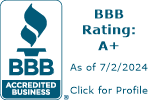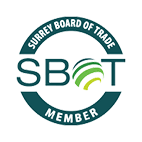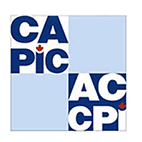In Canada, a nanny work visa, commonly called a caregiver program, opens up opportunities for individuals who aspire to work as caregivers for children, elderly individuals, or those with medical requirements. The Caregiver Visa is a pathway for eligible applicants who dream of moving to Canada as a caregiver, support worker, or foreign nanny, with the potential to apply for permanent residence. Currently, two Nanny Work Visa Programs are accepting new applicants.
Furthermore, applicants can apply under the Temporary Foreign Worker Program (TFWP), a supportive avenue where employers must secure a positive LMIA from Service Canada, and the caregiver can then apply for a regular work permit.
Who Can Apply for Nanny Work Visa in Canada?
Caregiver for Children (NOC 44100):
- Individuals who care for children under 18 years of age.
- This category includes positions such as childcare providers, live-in caregivers, and nannies.
People with High Medical Requirements:
- Elderly persons aged 65 years or over.
- Individuals with disabilities, chronic illnesses, or terminal illnesses.
- The following occupations fall under this category:
- Registered nurses or registered psychiatric nurses (NOC 31301).
- Licensed Practical Nurses (NOC 32101).
- Attendants for persons with disabilities, home support workers, live-in caregivers, and personal care attendants (NOC 44101)
Categories Under Canada’s Nanny Work Visa Programs:
1. Gaining Experience Category
- Experience: You can apply under the Gaining Experience category if you’ve never worked full-time as a caregiver in Canada or have less than 12 months of work experience.
- Job Offer: You need a genuine and valid job offer that aligns with the National Occupational Classification (NOC) job codes for either the Home Child Care Provider (NOC 44100) or the Home Support Worker (NOC 44101).
- Language Requirements: For English, the minimum requirement is Canadian Language Benchmarks (CLB) 5 in all four language skills: writing, reading, listening, and speaking. For French, the equivalent is Niveaux de compétence linguistique canadien (NCLC) 5.
- Education: You must possess a completed post-secondary education credential of at least 1 year from a Canadian institution or outside Canada (for outside Canada credentials you’ll need to have it assessed via organizations like WES).
- Live-In Arrangement: You and your employer may choose a live-in arrangement that meets provincial/territorial employment standards to cater to the care recipient’s needs.
2. Direct to Permanence Category
- Experience: You must already have 12 months of qualifying work experience as a caregiver in Canada. Both you and your family members may be eligible to apply.
- Language Proficiency: The minimum required level for English is CLB 5 for all four language skills: writing, reading, listening, and speaking. For French, the minimum required level is NCLC5 for all four language skills.
- Education: You need a completed post-secondary education of at least 1 year in Canada. If you have a foreign education credential, it must be assessed to show equivalency to a Canadian post-secondary education credential of at least 1 year.

Apply for Canada Nanny Visa
Find out today if you qualify for Nanny Work Visa.
How to Apply for Canada Nanny Work Visa?
1. Check Eligibility Criteria
A. Home Child Care Pilot (HCCP) Eligibility Requirements
- Finished one year of post-secondary education in Canada or outside Canada.
- Must demonstrate language proficiency in either English or French of at least CLB5.
- Must demonstrate at least one year’s work experience under NOC TEER Code 44100.
- A valid job offer.
B. Home Support Worker Pilot (HSWP) Eligibility Requirements:
- Finished one year of post-secondary education in Canada or outside Canada.
- Must demonstrate language proficiency in either English or French of at least CLB5.
- Must demonstrate at least one year’s work experience under NOC TEER Code 44101.
- A valid job offer.
- Job designations covered Family caregivers, Housekeepers, Home support workers, Attendants for the differently-abled, Live-in caregivers for the aged, Personal care attendants, and Personal helpers.
These programs prefer people with a General Nursing and Midwifery (GNM) Diploma, A Bachelor’s degree in Nursing, or similar occupations.
C. Basic Eligibility Criteria: Temporary Foreign Worker Program (TFWP)
- Provide care on a full-time basis (minimum 30 hours per week)
- Work in a private household where care is being provided
- Meet the requirements set by Employment and Social Development Canada (ESDC)/Service Immigration, Refugees and Citizenship Canada (IRCC).
2. Take Language Test
- Schedule a Language Test: Book a language test with an approved agency. Pay the associated test costs.
- Receive Test Results: After taking the test, you’ll receive results indicating your proficiency level. Compare your scores to the Canadian Language Benchmark (CLB) charts.
- Minimum CLB Level: If you achieve at least CLB 5 in all four abilities (writing, reading, listening, and speaking), you meet the minimum language requirement. Include a copy of your test results when you apply for the nanny work visa.
- Validity of Test Results: Ensure your test results are under 2 years old when submitting your application.
The following tables show the language tests accepted under the Nanny Work Visa Program:
| Language Level | Language Test | Reading | Writing | Listening | Speaking |
|---|---|---|---|---|---|
| CLB5 for English | CELPIP (General) | 5 | 5 | 5 | 5 |
| IELTS (General Training) | 4.0 | 5.0 | 5.0 | 5.0 | |
| PTE Core | 42-50 | 51-59 | 39-49 | 51-58 | |
| NCLC5 for French | TEF Canada | 352-392 | 330-378 | 352-392 | 387-421 |
| TCF Canada | 375-405 | 6 | 369-397 | 6 |
3. Education Credential Assessment (for Outside Canada Applicants)
- An Educational Credential Assessment (ECA) is necessary if you lack a Canadian one-year post-secondary credential. It verifies that your foreign education matches Canadian standards. You can obtain an ECA from approved organizations like the University of Toronto or WES.
- After applying and paying fees, you’ll receive a report indicating if your foreign credential is equivalent to a Canadian one-year post-secondary education or higher.
4. Apply for Permanent Residence through HCCP or HSWP
- To apply for permanent residence under the Home Child Care Provider or Home Support Worker pilots, sign in to the Permanent Residence portal, select the “Economic” program and choose from the given categories.
5. Gather Documents
- Fill out the forms, including the Generic Application Form for Canada (IMM 0008), Background/Declaration (IMM 5669), Family Information (IMM 5406), and Supplementary Information – Your Travels (IMM 5562).
- Upload the following PDF forms: Document Checklist [IMM 5981]: This ensures you include all necessary forms and documents. Schedule 19a – Home Child Care Provider or Home Support Worker – Education and Language Assessment [IMM 5982]
- For forms that require a signature, you’ll need to upload: Application For a Work Permit Made Outside of Canada [IMM 1295], Statutory Declaration of Common-law Union [IMM 5409] (if applicable), Separation Declaration for Minors Travelling to Canada [IMM 5604] (if applicable), Offer of Employment [IMM 5983]: You and your employer can digitally or by hand sign this form.
6. Pay Necessary Fees
Pay the processing fees for you and anyone included on your application for permanent residence, including the Right of Permanent Residence Fee (RPRF), the work permit processing fee and open work permit holder fee, the biometrics fee (if required), and the Study and work permit fees for your family members.
7. Biometrics
- You will receive a Biometric Instruction Letter (BIL) with the authorized service points where you can provide your biometrics. Bring this letter to your appointment.
- The immigration officer will verify your application, fees, and documents. Incomplete applications will be returned.
8. Decision on Permanent Residence
- To get permanent residence in Canada, you must meet eligibility criteria, submit a complete application with fees, and be admissible. Additional documents may be required.
- If eligible, you can get an approval in principle letter and apply for a Bridging Open Work Permit (BOWP) to keep working while waiting for a final decision on your permanent residence.
9. Upon Approval of Permanent Residence
- In Canada: Confirmation of PR status is usually confirmed online without in-person interviews. Keep contact details updated.
- Outside Canada: If you need to enter Canada, you may need to send your passport for the issuance of a Confirmation of Permanent Residence (COPR) and a visa counterfoil.

What is the Processing Fee for Nanny Work Visa?
The processing fees associated with the Home Child Care Provider Pilot and Home Support Worker Pilot in Canada, considering both the “Gaining Experience” and the “Direct to Permanent Residence” categories.
Gaining Experience Category
- Processing Fees for Permanent Residence Application:
- Processing fee: $570 CAD
- Right of Permanent Residence Fee (RPRF): $515 CAD
- Total: $1,085 CAD
- Work Permit Fees:
- Work permit processing fee (including extensions) per person: $155 CAD
- Open work permit holder fee: $100 CAD
- Biometrics Fee (if required).
Direct to Permanent Residence Category:
- Processing Fees for Permanent Residence Application:
- Processing fee (applicant): $570 CAD
- Right of Permanent Residence Fee (RPRF) (applicant): $515 CAD
- Total (applicant and family members): $1,085 CAD
- Biometrics Fee (if required).
Ready to Apply for a Canadian Nanny Visa?
Apply for a Nanny Work Visa with the help of our Licensed RCIC Experts.
Canada Nanny Visa Application Caps
Gaining Experience Category
| Program | Total Applications | Online Applications Cap Reached | Alternate Format Applications Cap Reached | Application Deadline |
|---|---|---|---|---|
| Home Child Care Provider Pilot | 1,650 | 1,500 (January 1, 2024) | 150 (January 26, 2024) | June 17, 2024, at 11:59 p.m. ET |
| Home Support Worker Pilot | 1,650 | Open | N/A | June 17, 2024, at 11:59 p.m. ET |
Direct to Permanent Residence Category
| Program | Total Applications | Online Applications Cap Reached | Alternate Format Applications Cap Reached | Application Deadline |
|---|---|---|---|---|
| Home Child Care Provider Pilot | 1,100 | 1,000 (April 21, 2024) | Open | June 17, 2024, at 11:59 p.m. ET |
| Home Support Worker Pilot | 1,100 | Open | N/A | June 17, 2024, at 11:59 p.m. ET |
Need Professional Help with Nanny/Caregiver Visa?
If you’re looking for professional assistance in obtaining a visa for a nanny or caregiver, look no further than ELAAR Immigration. We specialize in helping prospective caregivers, nannies, and employers navigate through the complex immigration process. Our team of Regulated Immigration Consultants is well-versed in the caregiver and nanny sponsorship programs. You can count on us to provide expert guidance every step of the way. Get in touch with us today to start your journey towards securing the right visa for your needs!









